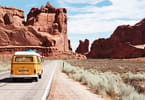David Lemon, the 67-year-old explorer and writer who is attempting to walk the entire length of the Zambezi River, arrived in Siavonga on October 20, 2012. David’s “long walk” began on April 25 when his epic journey began at Mwinilunga in Northwestern Zambia, and will end some 3,540 kilometers downstream where the river empties into the Indian Ocean at the remote settlement of Chinde in Mozambique.
David hoped to enter the record books by being the first known explorer to walk the entire length of the Zambezi River – not even David Livingstone laid claim to such an amazing feat of endurance. However, David’s attempts at the record were thwarted soon after the journey had begun when he tried to cross into Angola to follow the river a mere 240 kilometers before it flows back into Zambia at Chivuma. Before starting off on his journey, David inquired with the Angolan Embassy in London about obtaining a visa only to be told that he could obtain it at the border – upon arrival at the border at Jimbe he was denied entry.
He returned to Solwezi where he attempted to get help in obtaining a visa. The then Minister of Foreign Affairs and Tourism, the Hon. Given Lubinda, who had supported David’s record-breaking attempt on behalf of the Zambian government, promised to speak to his Angolan counterparts, but alas this intervention did not result in permission to travel through Angola.
Even though the record was now impossible to achieve, undeterred, David decided on a compromise and followed the border line between Zambia and Angola from Jimbe to the point where the river crosses back into Zambia.
The journey through the Western plains was according to David “a bit of a nightmare.” The Zambezi flood waters had not receded as he had expected, and he walked for days through knee-deep water and sometimes wading waist deep. At places along his journey David was able to communicate with the “outside world,” and at one point he was quoted as saying: “Grass tore at my feet and falls were frequent, while my nights were spent on small patches of high ground without firewood and in company with millions of marauding mossies. The water was full of leeches, too, and I spent a lot of time tearing them off and leaving my legs streaming blood to attract more.”
“Had it been possible, I would have packed up then and there, but fortunately perhaps, I just had to press on as I was entirely alone and help was not readily available. I was later told by locals that nobody had walked across the plain at that time of year (July) in living memory.”
Pressing on, David reached the “half-way” point, arriving at Victoria Falls, Livingstone, on the August 13. Tired, dirt,y and having lost 22 kilos of body weight on this journey, David sought refuge and was “kindly adopted” by Karien and Peter Kermer who live on a remote riverside farm on the outskirts of Livingstone. After a week of kindness, care, and “feeding up” to gain strength, David was raring to go again and continue his journey.
David said that he has been overwhelmed by the kindness of the Zambian people.
“No matter what color, creed, or societal status they were, they have welcomed me and helped wherever and however they could. If they had any doubts as to my sanity for attempting this walk, they kept them to themselves, and the general attitude was summed up for me by a Lozi fisherman called Reuben, with whom I enjoyed a Sunday meal of fish and nshima. Reuben took my photograph on his cell phone – no matter how poor they are, they all have phones – and told me that he was going to take it into Sesheke and have it printed to poster size so that he can one day tell his grandchildren that he spent time with David Lemon. Nice hey?”
“I have also been compared with Jesus walking through the wilderness, taken for the Spirit of some early explorer, and even asked to run for President, as I would now understand how ordinary people live.”
Having rested awhile, David set off on the next leg of his journey from Livingstone to Siavonga, a section that would be one of the most challenging and taxing due to the difficult terrain he had to cross. The tired traveler arrived at Mpango (Lotri Bay), about 20 kilometers from Siavonga and sought refuge with an old friend, Glen Tatham.
Messages were relayed to Eagles Rest, who was to host his next resting stop, and arrangements were made to collect David by boat. The Eagles Rest houseboat, the “Bateleur,” went to collect him, and David enjoyed a well-earned relaxing trip to Siavonga.
Don’t worry – David’s record is still intact as he walked up and down the deck during the journey.
The next stage of the journey takes David through the Kariba Gorge and onwards down the Lower Zambezi Valley towards Mozambique. However, due to the onset of the rains and the excessive summer heat in the lower valley, David has decided to take a break and return to the UK for a while.
Another reason for David’s suspension of the walk is, at the request of the Zambian government, he will write the first chapters of his book on his travels, covering the “people of the Zambezi Valley,” for use in schools. He will be returning to Siavonga after the rains to continue his epic journey and complete his long walk to the Indian Ocean.
David is being sponsored by the Zambian milk processing company “Cowbell.” The generous sponsorship not only provides David with financial support but the company also re-supplies him with food and other provisions at every possible place along his journey.
David is also doing the walk to try and draw attention to the fact that the African Elephant is becoming endangered in the Zambezi Valley due to poaching. David runs a charitable fund known as the “Kariba Elephant Campaign” together with Zimbabwean wildlife artist, Nic Lywood, and an English accountant who, according to David, “has never seen a wild elephant.”
The fund does not solicit money, but uses the profits from David’s adventure books and Nic’s paintings to subsidize the people working on the ground to release elephants and other animals from snares.
“This is a costly business in terms of fuel, maintenance, and the purchase of tranquilizing drugs” David said, “and although we know we are fighting a losing battle, the little we can do to help the dedicated folk who do their best for wildlife, the better we feel about it.”
WHAT TO TAKE AWAY FROM THIS ARTICLE:
- If they had any doubts as to my sanity for attempting this walk, they kept them to themselves, and the general attitude was summed up for me by a Lozi fisherman called Reuben, with whom I enjoyed a Sunday meal of fish and nshima.
- Even though the record was now impossible to achieve, undeterred, David decided on a compromise and followed the border line between Zambia and Angola from Jimbe to the point where the river crosses back into Zambia.
- However, David’s attempts at the record were thwarted soon after the journey had begun when he tried to cross into Angola to follow the river a mere 240 kilometers before it flows back into Zambia at Chivuma.






















